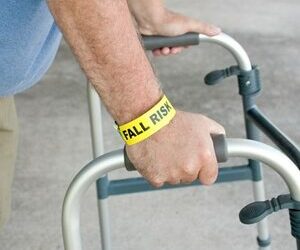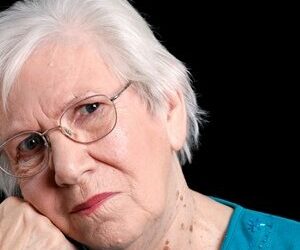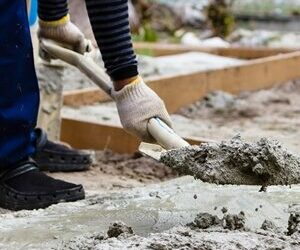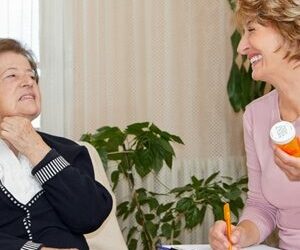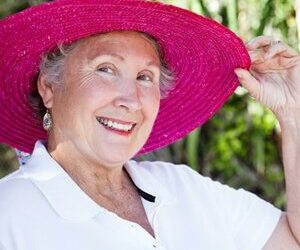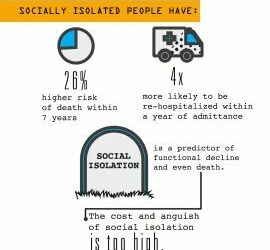Independa Blog
Life, Connected!®
Delivering peace of mind for your entire family through connections and valuable services, made easy, made meaningful. Care, even when you can’t be there.
A Life, Connected® … is a healthy life.
Staying engaged in the face of Alzheimer’s
Recently, NPR touched on the challenges of day-to-day Alzheimer’s care while still impressing the point that men and women with this condition can still lead full and rewarding lives.
Researchers break ground on fall sensors for older adults
Scientists from the University of Utah released information about a new system of electronic sensors that may be able to detect if a fall has taken place.
Review explores potential of smartphones and tablets to expand remote monitoring capabilities
Advancements in remote technology have made it easier than ever for us to stay connected with one another, making geographic limitations a thing of the past. This ability can be leveraged in a number of different arenas, from maintaining personal relationships to bolstering outpatient care.
Enticing undecided older adults with telecare
Between attracting new clientele in an increasingly competitive marketplace and navigating a minefield of budget cuts and staff shortages, the challenges of this rewarding but undoubtedly overwhelming line of work continue to stack up.
PBS piece on aging in NYC calls for celebration of older adults
Thanks to improvements in eldercare, including better medical treatment and innovations like telecare, Americans are living longer than ever, and a touching and appropriately timed PBS piece recently highlighted a need to view this population in a different way.
Study shows connection between emotional trauma and fall risk
While it is not your position to provide medical treatment for the older adults you care for, it is in your power to observe and act on changes in their condition.
Eldercare community improves quality of life through “virtual visits”
One method that a growing number of eldercare providers are turning to is the introduction of telecare services including video chat capabilities.
Record-breaking swimmer Diana Nyad shows age truly is just a number
What is it about Nyad’s story that has struck such a chord across the country?
British woman founds helpline for older adults to combat social isolation
Though the vast majority of older adults today prefer to age in place over transition to a specialized eldercare community, this option presents many distinct challenges – especially for men and women without an extensive support network.
Why should you introduce telecare during preconstruction?
In this increasingly competitive marketplace, eldercare communities must find new ways to distinguish themselves from the pack to bolster occupancy rates, all while ensuring that their facilities can provide quality care to each resident.
Addressing older adult needs from the ground up
When it comes to assisted living communities and other facilities geared toward older adults, that means incorporating new eldercare innovations from the ground up.
Improving “quality-adjusted life expectancy” with telecare
University of Massachusetts Medical School (UMMS) associate professor Dr. Allison Rosen expanded on the details of “quality-adjusted life expectancy” (QALE) and how it has transformed over the years.
Study sheds further light on dementia risk
An awareness of the particular risks certain older Americans may face can play an important role in successful care.
America celebrates National Senior Citizens Day, recognizing older adults everywhere
Independa’s powerful eldercare technology allows older adults everywhere to remain as independent and engaged as the Society Hill Dance Academy members who danced their way around Rittenhouse Park last week.
PBS NewsHour: Older adults found organization to support independent living in the city
Aging in place is by far the most popular means of spending retirement among today’s older Americans, but issues like social isolation and the possibility that someone’s condition will deteriorate out of sight can make this option a somewhat concerning one.
Help care recipients retain their mental faculties with this beverage
As a care manager, ensuring the comfort and well-being of your care recipients is your top priority. A large part of this task involves keeping abreast of any changes in condition that could ultimately impair their quality of life.
Pew reveals huge jump in older adult social media use
According to findings from the Pew Research Center’s Internet & American Life Project, approximately 72 percent of adult Americans use some form of social media.
Alarming dementia statistics revealed in study on Chinese population
Researchers have found that approximately 93 percent of dementia cases in China go undiagnosed.
Older Americans are enjoying better health: What this means for care managers
Amid concerning reports of diabetes and cardiovascular issues, as well as the ever-present specter of Alzheimer’s disease, it is refreshing to hear good news about the overall health of older Americans today.
Frontline exposé: Questions all care managers must ask
The harrowing portrayal of greed in the upper tiers of this field was shocking for care professionals and the general public alike, leading many to ask how such personal tragedies could take place, and what can be done to prevent caregivers and recipients from falling victim to this neglect.
What can you learn from the Frontline exposé on assisted living communities?
As upsetting as this exposé has been for the general public, it is also incredibly difficult for care managers and caregivers to watch.
How to boost staff satisfaction by leveraging technology
Prioritizing staff satisfaction can prove challenging when profit margins are tight and schedules are overloaded across the board, but caregiving support technology can help.
What care managers can learn from “Grandma Drummer”
Remaining engaged mentally, physically and socially can play a substantial role in the continued health and quality of life enjoyed by older individuals, as one woman’s lifelong passion for music shows.
Telecare companies seek to make social impact
While some advancements in technology are solely focused on recreation, others have the potential to truly change the lives of people in need. Such is the case with telecare, which encompasses technological innovations meant to improve the quality of life of older adults and ease the burden placed on caregivers across the country.
French study shows delayed retirement, prolonged engagement may ward off dementia
New research conducted by the French health research agency INSERM has revealed that older adults who delay retirement may have a lower risk of developing dementia.
Study shows value of “perceived control” among older adult care recipients
The study analyzed the satisfaction of older adults in independent living and residential community environments to gauge the effect of perceived control on overall quality of life.
Heat waves threaten older adults across the country: What you need to know
As a care manager, the well-being of your care recipients is of the utmost importance. To better understand how to protect the older adults in your care at this time, it’s important to understand why this population is so at risk.
Baby Boomers are getting older: What it means for eldercare providers
Baby Boomers account for 26 percent of the U.S. population, and are crossing the threshold of retirement age at a staggering pace, as 280,000 members of this generation turn 65 every month.
New Chinese policy prioritizes social connectivity for older adults
Recently, news broke that the Chinese government had introduced a policy requiring citizens to visit their parents, grandparents and other relatives regularly, in part as a bid to protect older adults from the myriad complications linked to social isolation.
New report explores growing role of teleservices
Many have looked to the growing adoption of teleservices, including telecare, as one of the most viable options available to accommodate this community while conserving resources and easing the burden on individual eldercare employees.


